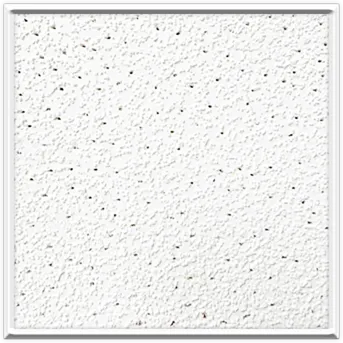Nov . 08, 2024 07:38 Back to list
Access Panel Solutions for Gypsum Walls and Ceilings in Interior Construction
Exploring the Access Panel Gypsum A Comprehensive Overview
Access panels play a crucial role in modern construction and interior design, serving as essential elements for maintenance and accessibility to various building systems. Among the various materials used for access panels, gypsum stands out due to its unique properties and benefits. In this article, we will delve into the characteristics, advantages, applications, and best practices associated with gypsum access panels.
Understanding Gypsum Access Panels
Gypsum access panels are flat panels made from gypsum board, a material that consists of a core of gypsum plaster sandwiched between two layers of thick paper. This composition makes gypsum panels lightweight yet remarkably durable. They are designed to provide easy access to concealed spaces, such as plumbing, electrical wiring, and HVAC systems, without compromising the integrity of walls and ceilings.
Characteristics of Gypsum Access Panels
1. Fire Resistance One of the most significant attributes of gypsum is its fire-resistant properties. Gypsum is naturally non-combustible and can withstand high temperatures, making these access panels an excellent choice for areas that require enhanced fire safety.
2. Sound Insulation Gypsum panels can also provide sound insulation, which is essential in residential and commercial buildings. They help reduce noise transmission between different spaces, contributing to a more peaceful environment.
3. Moisture Resistance Many gypsum access panels come with moisture-resistant features, allowing them to be used in humid or wet areas, such as bathrooms and kitchens. This prevents mold and mildew growth, which can be detrimental to building health.
4. Aesthetic Versatility Gypsum access panels can be seamlessly integrated into various architectural styles. They can be painted or finished to match surrounding surfaces, ensuring that aesthetics are maintained while providing functionality.
Advantages of Using Gypsum Access Panels
1. Cost-Effective Gypsum panels are typically less expensive than alternative materials, such as metal or wood. Their lightweight nature also reduces transport costs and simplifies installation.
2. Ease of Installation Gypsum access panels are easy to cut and install, which can significantly save time and labor costs during construction. They often come with a pre-fabricated design that simplifies the installation process.
access panel gypsum

3. Durability When properly maintained, gypsum panels can last for decades. Their resistance to common wear and tear makes them an excellent long-term solution for access points.
4. Versatile Applications Gypsum access panels are suitable for various applications, from residential homes to commercial buildings and industrial facilities. They can be used in ceilings, walls, and even floors, depending on the specific requirements of the space.
Applications of Gypsum Access Panels
Gypsum access panels are commonly used in
- Restrooms To provide access to plumbing fixtures and maintenance points without damaging the wall finishes. - Utility Rooms For easy access to electrical panels and HVAC systems, promoting efficient maintenance practices. - Hospitality Settings In hotels and restaurants, they ensure that essential services remain accessible without interfering with the guest experience.
Best Practices for Installation and Maintenance
1. Plan Location Carefully When installing gypsum access panels, choose locations that provide maximum accessibility while minimizing visual impact. Consider the proximity to the systems and ensure they are not obstructed.
2. Follow Manufacturer Guidelines Each manufacturer may have specific installation recommendations. Adhering to these instructions will ensure optimal panel performance.
3. Regular Maintenance Checks Inspect access panels periodically to ensure they remain functional and free from damage. Any damage should be repaired promptly to maintain accessibility.
4. Consider Upgrades As technology advances, consider upgrading access panels with features such as locking mechanisms or sound-dampening materials to enhance their functionality and performance.
Conclusion
Gypsum access panels are invaluable components in modern building design, providing essential access while ensuring safety, durability, and aesthetic appeal. Their unique properties make them a suitable choice for a wide range of applications, enhancing both functionality and user experience. Investing in quality gypsum access panels can lead to significant long-term benefits for any construction project, reinforcing the importance of smart planning and installation practices in creating efficient, accessible spaces.
-
Quality Ceiling Trap Doors & Access Panels | Easy & Secure AccessNewsAug.30,2025
-
Durable Ceiling T Grid Systems | Easy InstallationNewsAug.29,2025
-
PVC Gypsum Ceiling: Durable, Laminated Tiles for Modern SpacesNewsAug.28,2025
-
Pvc Gypsum Ceiling Is DurableNewsAug.21,2025
-
Mineral Fiber Board Is DurableNewsAug.21,2025
-
Ceiling Tile Clip Reusable DesignNewsAug.21,2025







